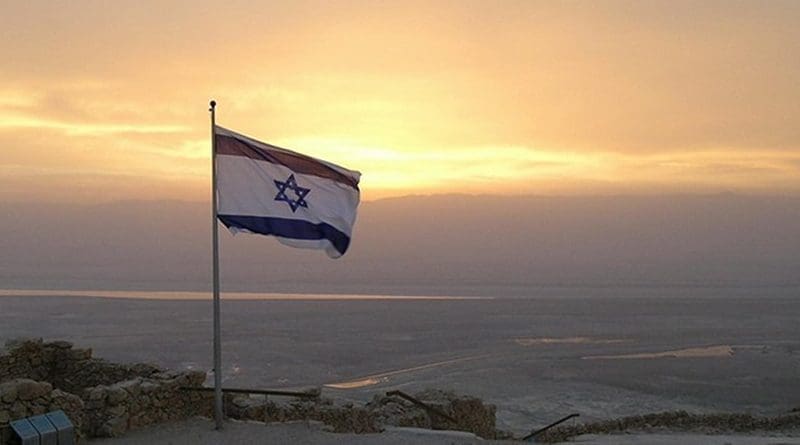The Results Of Israel’s Elections Depend On The Arab Voting Outcome – OpEd
By Mark Haddad
Israel will hold its 5th election in 4 years in one week. The three main nominees to become the next Prime Minister are Benjamin Netanyahu, Yair Lapid, and Benny Gantz. The elections will be held on November 1st, and as things stand, not only will Netanyahu stand at the head of the largest party, he will be able to form a right-wing coalition that will include the right-wing radical extremist, Itamar Ben Gvir.
Israel has already had 4 elections in the past 4 years. This is due to the division in Israel into two main camps: Pro-Netanyahu and anti-Netanyahu. This division became imminent when the former prime minister was accused of and officially indicted for breach of trust, accepting bribes, and fraud. Supporters of Bibi remained loyal, while others took a harsh stand against the prime minister, looking for any alternative as long as it ensured he was ousted. This led to a stalemate as almost half of the seats in parliament are in favor of Netanyahu while the other half are against it. Thus, both sides have struggled to reach a majority in parliament and establish a new government. The parliament is made of 120 members, and to create a coalition, one must reach at least the support of 61 parliament members.
Last year, the anti-Netanyahu camp was able to establish a new government, which included (for the first time in history) an Arab party. The government was a combination of the left-wing, anti-Netanyahu right wing, and the Arab party representing Arab citizens of Israel. This combination of different ideologies, could not sustain, and the government dissolved earlier this year. Nevertheless, the inclusion of the Arab party in the coalition raises questions about the position of Arab citizens in Israeli politics and society as a whole.
Traditionally, Arab political parties in Israel were always part of the opposition. Due to the sensitive nature of joining a coalition, including military decisions. Thus, Arab parties that would join a coalition would also carry the blame for any decisions by the government, particularly those that affect the Palestinians in the West Bank and Gaza Strip. Therefore, the four existing Arab parties had refrained from joining coalitions with Israeli governments. Even when Yitzhak Rabin created a coalition that focused primarily on solving the Israeli-Palestinian conflict, Arab parties supported that government from the outside and refused to be full members of the coalition.
Abbas was able to increase the budget for Arab communities in Israel, and take action against the rise in crime in the Arab community in Israel. Even though the government lasted for merely a year, Abbas was able to do more for the Arab community in Israel in one year than all the Arab parties combined. Nevertheless, the community itself is undecisive in its participation in the Israeli political sphere. Arabs also lack trust in the Israeli political system, despite all of Abbas’s achievements. Going forward, Abbas faces a serious concern that he might not meet the minimum threshold to join the next government. In this light, these elections will be a test for the Arab community and Abbas.
So far, the polls suggest that the Arab population will have very low numbers in the upcoming elections. Some within the Arab community adamantly distrust the government, while others distrust the Arab representatives. Thus, the Arab’s choice to vote (or not to), will be the deciding factor in this election. The electoral system in Israel works according to voter outcome, and parliamentary seats depend on the voting outcome. Thus, in a low voting outcome, each seat in parliament will require a smaller number of votes, while a higher voting turnout will create a scenario that requires more votes to receive a seat in parliament.
This effectively means that the parliamentary system in Israel is in favor of the largest party. In a low voting outcome (especially as their voting numbers are relatively steady), they will be able to accumulate more seats and guarantee 61 majorities. In other words, the Arab refraining from voting not only weakens the Arab parties but also strengthens Netanyahu, who has used the Arab population to install fear in his right-wing supporters, calling them to vote because the Arabs will “take over”, as his famous video from the 2015 elections called for the Israeli right-wing to vote because “the Arabs are going to election poll in masses”.
Despite the frustration of the Arab community with the political system, the discrimination, and living in conflict, the Arabs must vote in the upcoming elections. Despite their resentment of the Israeli parliament, they must have power in it to promote the interest of their community, and most importantly, prevent Netanyahu who has led the wave of discrimination against Arabs from returning to power.
This time, to rise back to power Netanyahu will also need the support of the ultra-right-wing extremist, Ben Gvir, who represents the radical settlers, who target and attack Palestinians in the West Bank and Jerusalem. Netanyahu will have no choice as many within the general Jewish Israeli population are against him, so he must rely on figures like Ben Gvir to return to power.
In this election, the Arabs must take action and not stand on the sideline, otherwise, the Israeli government, as well as the society, will grow more extreme, radical, and hostile to Arabs and Palestinians. The power to determine whether or not Netanyahu will be back in power is in the hands of the Arabs, the question is, will they use it?

